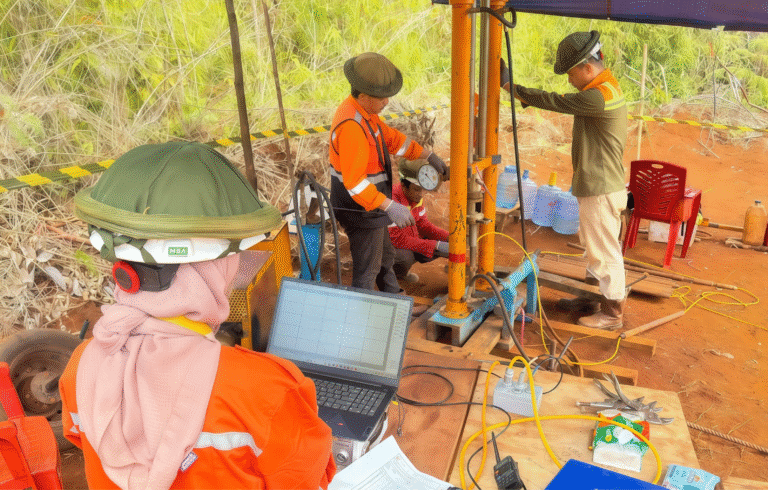
What Is Cone Penetration Test (CPT)? Functions, Procedures, and Benefits for Construction Projects
In the field of construction and geotechnical engineering, soil testing is crucial to understanding subsurface conditions before starting any building project. One of the most widely used methods is the Cone Penetration Test (CPT), also known in Indonesia as uji sondir. This test provides essential data on soil strength and classification, which greatly assists in determining foundation design and overall structural safety.
What Is a Cone Penetration Test?
The Cone Penetration Test is a direct in-situ soil investigation method used to measure soil bearing capacity and identify soil layers based on penetration resistance. A cone penetrometer is pushed into the ground at a constant rate, recording tip resistance (qc) and sleeve friction (fs) along the depth.
In simple terms, this test helps engineers and contractors evaluate whether the soil is strong enough to support the planned structure. Professional geotechnical consultants in Indonesia often rely on CPT as a fundamental tool in their site investigation services.
Functions of the Cone Penetration Test in Construction
Some of the main functions of CPT include:
Determining soil bearing capacity for foundation design
Identifying the depth of hard soil layers
Recommending suitable foundation types (piles, footings, etc.)
Preventing structural failure caused by weak soils
Preparing geotechnical investigation reports for project permits
General Procedure of CPT
The typical steps of conducting a CPT are as follows:
Site Preparation – clearing and marking the test location
Equipment Setup – positioning the CPT rig and ensuring vertical alignment
Testing – pushing the cone smoothly into the soil while recording resistance at every depth
Data Logging – qc and fs values are plotted into graphs or digital curves
Result Analysis – used for technical reporting and foundation design planning
The test usually takes 1–2 hours per point, depending on soil conditions and the required depth.
CPT Equipment Commonly Used
Hydraulic or manual CPT rigs
10–15 ton cone penetrometer
Digital logger (optional)
Manual or automated data acquisition system
At PT Geo Sinergi Utama, we use modern, internationally standardized CPT equipment to ensure accurate data collection and efficient fieldwork.
Example of CPT Results
The test results are typically presented in graphs showing:
qc values (cone tip resistance)
fs values (sleeve friction)
Friction ratio
Soil layer interpretation (clay, sand, silt)
CPT Services by PT Geo Sinergi Utama
We provide CPT services for a wide range of projects, including:
Residential housing and high-rise buildings
Roads, bridges, and port infrastructure
Mining, factories, and industrial facilities
Government and private sector projects
Service coverage: Greater Jakarta (Jabodetabek), Bogor, Kendari, Kalimantan, Papua, and across Indonesia.

